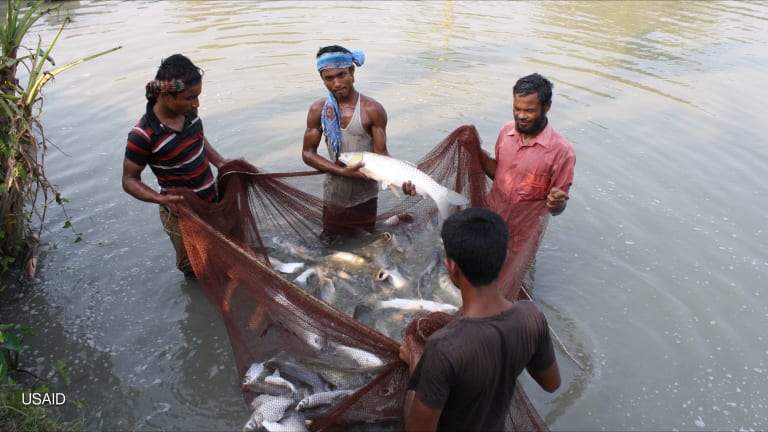The looming U.S. aid budget cuts will compound the shortage of funds for the famine in Somalia, which already suffers from an ’aid drought,’ humanitarian agencies say. Decreased aid to Somalia is also feared to undercut initiatives by the U.S. government to promote food security in the drought-ravaged country.
Raising money from both public and private sources to address the crisis in Somalia has been a challenge, and even celebrities and politicians have joined a vigorous multimedia campaign launched by the U.S. Agency for International Development last month to raise awareness on the crisis and urge Americans to donate.
>> USAID Launches Multimedia Campaign for East Africa Relief
But, so far, aid groups have raised only about $60 million from private sources in the United States, said Samuel Worthington, head of NGO alliance InterAction.
The amount pales in comparison with the $1.29 billion that InterAction members were able to raise for Haiti, he said.
The reason could partly be because it is harder to generate the same level of generosity in response to hunger in a complicated region such as Africa, unlike with dramatic events, including earthquakes and tsunamis, Worthington said. It could also be because people “don’t think there’s a solution.”
But apart from the slow inflow of private donations, humanitarian groups are worried the looming aid cuts would affect programs in Somalia that aim for longer-term solutions to prevent similar crises from happening in the future.
Tom Hart of the aid advocacy group ONE said Somalia’s neighbors Ethiopia and Kenya are experiencing the same double drought, but not the severe famine because of good investments in agriculture and pre-positioning of food.
The Obama administration’s signature aid program, Feed the Future, has already been scaled back by budget cuts.
Another group, World Vision, has taken a different tact with the way it lobbies for aid to Somalia with U.S. Congress.
“We have been emphasizing — you know what, the budget deficit is a moral issue. That’s about $55,000 per American. That’s a real moral issue. You can’t live beyond your means. But then we also raise, it’s a moral issue of saving a child’s life or responding to a famine,” World Vision’s Robert Zachritz said.
Others, however, say Congress could help by streamlining some of the rules governing U.S. aid as it is possible to do more with less.
Read more:
UNHCR Chief Calls for More Support Toward Solving Somalia Refugee Crisis
In Somalia, Aid Work Continues In Aftermath of Deadly Al-Shabab Attack
Aid System Overhaul Needed for Somalia Recovery, Experts say
Read more development aid news online, and subscribe to The Development Newswire to receive top international development headlines from the world’s leading donors, news sources and opinion leaders — emailed to you FREE every business day.








